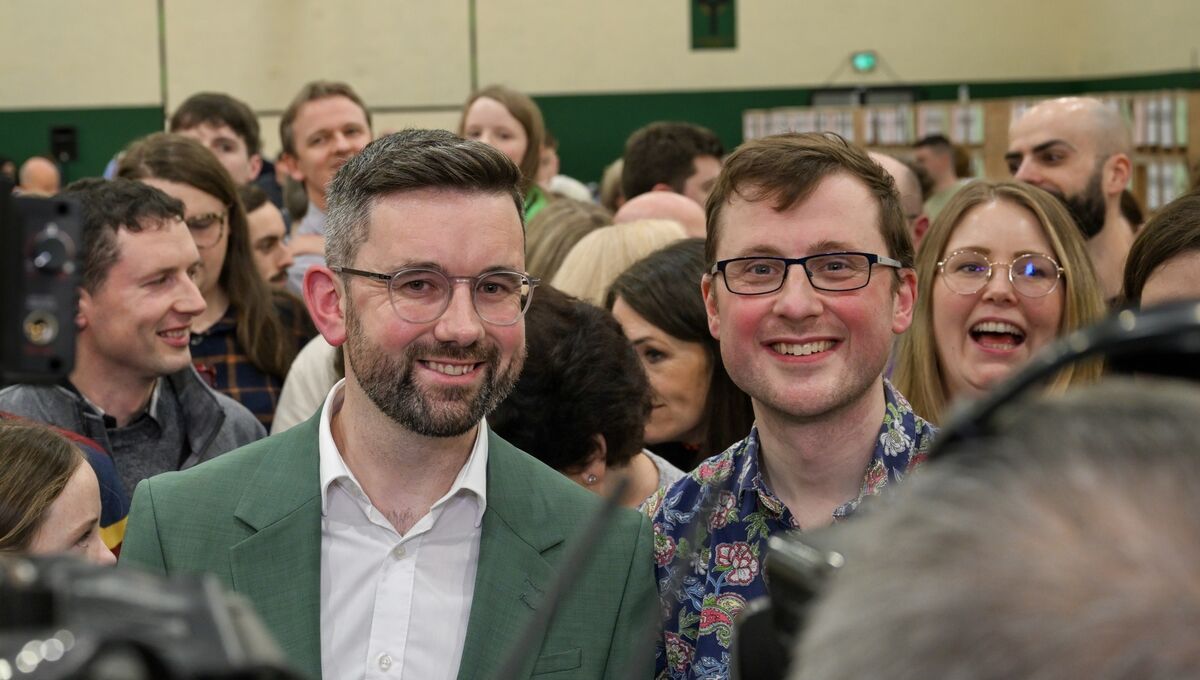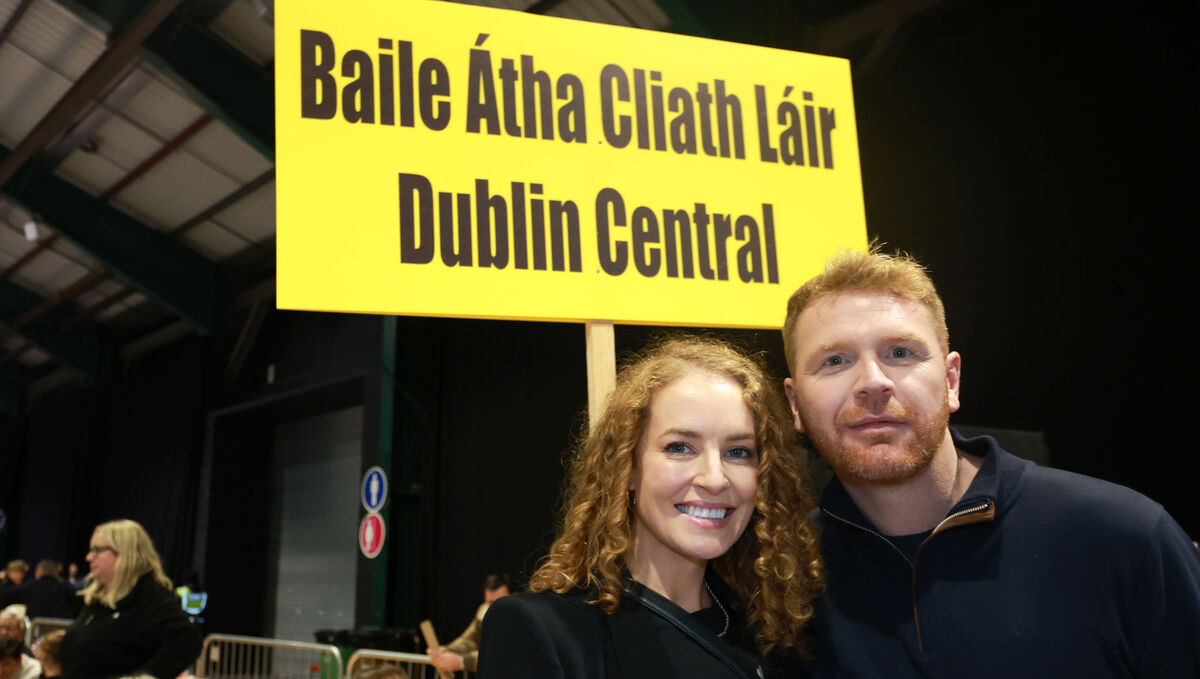Elaine Loughlin: 'Breath of fresh air' Cairns ushered in Hollymania as party leader

Part of Holly Cairns' appeal, which has filtered down to provide a knock-on support for those running under her party's banner, is her unconventional approach to politics. Picture: Damien Storan
An older man spotted the group of canvassers coming and, when they approached, he refused to take the political leaflet being pushed in his direction.
He had already made up his mind, so didn't need to read the literature.
"Your leader is a breath of fresh air," he told Social Democrats candidate Pádraig Rice and his canvassing team in Cork South Central.
"We need more young people in the Dáil," he said, promising his support in the general election.
That support has translated into a Dáil seat for Mr Rice, who was only elected a councillor for the first time earlier this year. It has also been replicated in constituencies across the country.
Scroll for results in your area
Hollymania first swept the country when the Cork South West was elevated to party leader back in March 2023. Since then, the quiet swell in support for the Social Democrats has continued — which was borne out in June's local elections and Friday's general election.
Key to that has been Ms Cairns herself, who has galvanised support amongst younger women — a group not usually involved in politics in large numbers. But, as the canvass with Mr Rice showed, her popularity extends far beyond those of her own gender or age.
While Cairns herself will not be present when the Dáil returns to nominate a Ceann Comhairle next month —having given birth to a daughter on election day and therefore will be on maternity leave — her party will be taking over five more seats than it did when it returned with six TDs after the 2020 general election.
It makes the Social Democrats the fourth largest party in the Dáil and very much in the mix when it comes to negotiations around forming a coalition.

On Monday, Sinn Féin president Mary Lou McDonald made contact with the Social Democrats as well as Labour in a bid to gather a left-leaning coalition. However, the only real option remains a coalition with Fianna Fáil and Fine Gael.
Ahead of Friday's vote, some within the two Civil War parties had been talking down the possibility of entering power with the Social Democrats — with one Fine Gael source suggesting that the party is "too idealistic", a comment which was not meant as a compliment.
Part of the Social Democrats success in last week's general election has been the fact that the party was extremely transfer friendly, meaning candidates crossed the line, sometimes unexpectedly.
This included Cork East where Liam Quaide got the final bounce of the ball to win him the final seat.
The former Green Party member had conceded defeat just hours before he was elected, stating on social media: "I may briefly get into that fray with later Green transfers, but these will not be enough to see me through."
However, he gained ground as the transfers went his way and was elected on the 12th count.
It was a similar situation for Eoin Hayes, taking the final seat in Dublin Bay South late on Sunday night. In doing so, he took out sitting Sinn Féin TD Chris Andrews.
Part of Ms Cairns' appeal, which has filtered down to provide a knock-on support for those running under her party's banner, is her unconventional approach to politics.

She is a farmer who has repeatedly called for an end to the nitrates derogation when almost all others in the political sphere have been backing the calls of the agricultural lobby to maintain it.
At a time of almost unbridled economic prosperity, her party did not promise tax cuts ahead of the general election — instead focusing on the need to deliver services for those with disabilities and the full implementation of Sláintecare.
The party has championed what are sometimes considered niche issues, like calling for an end to state support of the greyhound industry; campaigning for better maternity services; and highlighting the war in Gaza.
"There is an underestimation of the electorate, and particularly of people in rural areas, this kind of 'oh rural Ireland, sure they're all just anti-climate action and they'll never vote for something like marriage equality', all these just completely untrue and insulting presumptions about us, because we live in a rural area," Ms Cairns told the shortly after she was elevated to party leader.
It's an “honest and upfront” approach, that deputy leader Cian O'Callaghan stressed during the campaign, and which has cut through to voters.











